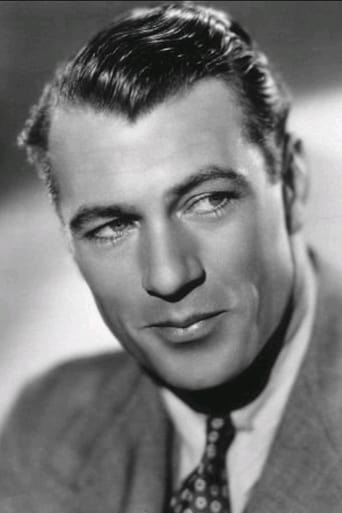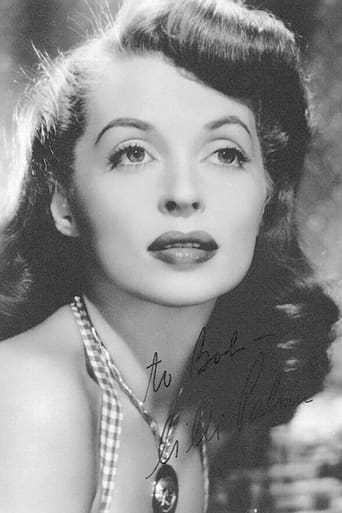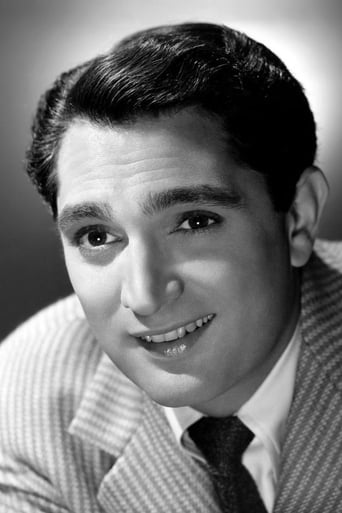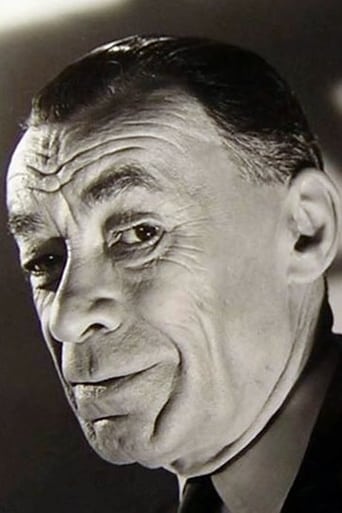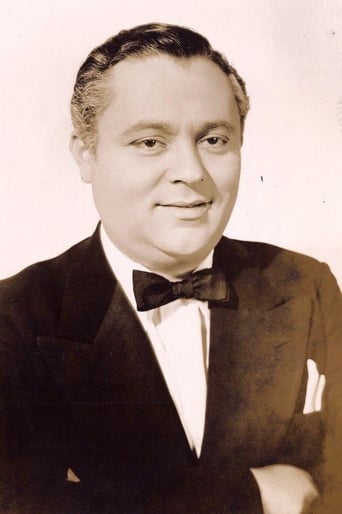Michael O'Keefe
Fritz Lang directs this gripping World War II thriller starring Gary Cooper as Alvah Jasper, a physics professor pressed into duty as an undercover agent for the government. Jasper's mission is to interrupt the Nazis' chances of developing any secrets leading to production of an Atom Bomb. He is sent to Switzerland to make contact with a scientist(Helen Thimig) who has information about how far along the German atomic technology is. Lilli Palmer plays a beautiful Italian resistance fighter that finds romance and becomes the girl Jasper leaves behind.CLOAK AND DAGGER involves covert activities of the OSS, underground espionage and psychological warfare. Not so much the physical war, but the day to day thinking and plotting of war. Cooper goes about the movie in his skilled stoic manner. He isn't very impressive in the fistfight sequence, but he is one of those vulnerable hero types like James Stewart. Palmer is radiant and promising. The cast also features: Alan Alda, Marjorie Hoshelle, Vladimire Sokoloff, James Flavan, Dan Seymour and J. Edward Bromberg.
secondtake
Cloak and Dagger (1946)More Than a Nazi Spy Film, and Less, TooThere are terrific aspects to this movie, but it's easy to get a bit bogged down at the start, and to flag here and there for the whole first half. Once it hits Italy, and a bit of a formula plot, it picks up steam, including a slightly steamy romance and a predictably dramatic end. It is a deliberate "propaganda" film, really, and it states outright that it is a tribute to the OSS, a 1940s foreign secret service that preceded the CIA. But don't let that bother you...it's not an important element in the drama. What is most striking, politically, is its prescient stance on the bomb. One ongoing problem for me is Gary Cooper, who plays an unlikely American physicist asked to do a highly dangerous undercover job in Switzerland, and then behind enemy lines. Cooper can be strong and calm and silent, and he pulls off the non-GI American with humility and poise. But he also comes off wooden, or worse. Cooper has often had the ability to take powerful lines, or whole dramatic moments, and make them unconvincing or almost destructive by what looks like lack of ability to act. If he is too famous and beloved by to too many people to say he can't act, I still think a red flag is needed here. If Cooper is an acquired taste at best, this isn't Cooper at his best. And he dominates the movie.Outdoing Cooper is the little known Lili Palmer, who had an important role in her next film, Body and Soul. Even though her lines (and her character) are all clichés of sorts, she adds little quirks and dramatic edges that make them work. She's not meant to be an Ingrid Bergman, but more like an Ida Lupino--a woman who can shoot and run, and yet remain a woman. A woman in a man's world. The supporting cast around these two leads isn't bad, not at all, but everyone top to bottom is trapped by a mediocre script, whatever the good intentions.Lang of course is a veteran director who understands dramatic film-making, as well as Europe itself, and in this anti-Nazi film we feel perhaps a tug from his own anti-Nazi past (fleeing Germany in the 1930s and leaving his Nazi-sympathizing wife behind). Politically, there is a strong, even brave, anti-atomic age theme to the movie, including an early impassioned speech by Cooper against the use of atomic weapons. This is just one year after the bombs were dropped on Japan, and the world was still trying to figure out what the atom bomb really meant. Very interesting, clear politics here, and yet it's ostensibly a patriotic film. Overall Lang makes the movie look and sound good, with the help of great cinematographer Sol Polito (Now Voyager, Arsenic and Old Lace) and music by Max Steiner.Another theme which can't be overlooked is a more social one--the romance is really a reason to remind us of the roles women and men are "supposed" to have. War is war, and and in 1946, women and men can go back to what they had been doing before--including getting married and having kids (the scene in the old carousel is a suggestive example here). This underscores the bond and the conflict of Cooper and Palmer, a pair of ordinary people sucked into the high drama of war but wanting only a peaceful world where they could do ordinary things like fall in love without fear.There is actually a lot going on here. Watch for its strengths, and keep your expectations in line.
Claudio Carvalho
Toward the end of World War II, the allied secret service receives a partial message indicating that the Germans are researching nuclear energy to build atomic bombs. In Midwestern University, the scientist Alvah Jesper (Gary Cooper) is called up by the Office of Strategic Services (OSS) to meet his former colleague Dr. Katerin Lodor (Helen Thimig) in Switzerland and bring her to North America. However, his mission fails and Dr. Lodor is killed by the Nazis but first she informs that Alvah's acquaintance Dr. Giovanni Polda (Vladimir Sokoloff) is working for the Nazis in Italy. Dr. Jesper travels to Italy and with the support of the Italian partisans leaded by Pinkie (Robert Alda) and Gina (Lilli Palmer), he has a meeting with Dr. Polda that is under the surveillance of the Gestapo. The scientist tells him that his daughter Maria had been abducted by the Gestapo and Alvah makes a deal with Dr. Polda, promising to release Maria first and bringing them to North America. While Pinkie travels to rescue Maria, Alvah stays with Gina and they fall in love for each other."Cloak and Dagger" is a suspenseful and full of action romance in times of war. The enjoyable story has good moments of tension but it is only a reasonable work of Fritz Lang. Gary Cooper's character seems to be a skilled and well-trained agent and not a scientist in many moments and Lili Palmer performs a strong female character in one of her first works. My vote is seven.Title (Brazil): "O Grande Segredo" ("The Great Secret")
kyrat
I'm a fan of both Gary Cooper and Fritz Lang films, and while I don't think this film is either person's greatest work, I did enjoy it.I think it's important to think about the time this was filmed and to think about how close it was to the events at the time, coming mere months after the US had bombed the Japanese.I think it was an important step at the time to make us aware of the dangers of nuclear weapons.I felt the film was careful not to turn into a propaganda piece trying to stir up hatred and fear.I also enjoyed see the "average" (if we all looked like movie stars) people doing what they could to fight the enemy. This wasn't supposed to be a trained James Bond, just someone truly concerned with helping as he could.I think what I liked best about the film is that it actually featured strong female characters. There was a famous and respected female nuclear physicists (in a world where women are STILL discriminated against in the sciences at Ivy League schools)! There was a female spy. There was a schoolteacher turned resistance fighter. There were evil women who killed. Women were just as much a part of everything that went on as anyone else.*Spoiler warning* Without revealing too much, I'd like to say that I also like the ending! I liked seeing that duty was chosen over escape or personal comfort. Coming from a woman (who has probably been socialized that men/love is everything) - that was refreshing to see in a movie! No unrealistically wrapped up happy ending.
